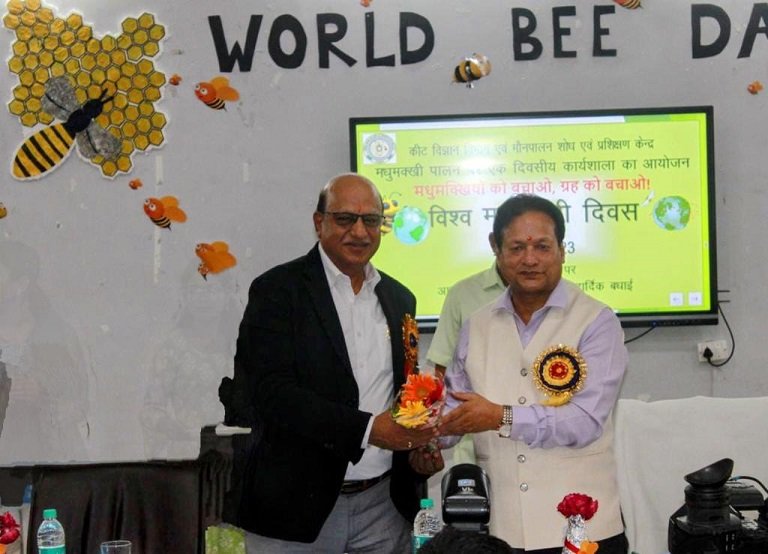FMC India, GB Pant University jointly conducts workshop on bee keeping in Uttarakhand
To encourage women farmers towards entrepreneurship and generate sustainable income through bee keeping.
To enhance the ecosystem of beekeeping in Uttarakhand, FMC India, a leading global agricultural sciences company, in collaboration with GB Pant University of Agriculture & Technology (GBPUAT) organized a day long workshop to observe World Bee Day. The initiative was part of FMC’s flagship program, Project Madhushakti which was launched in 2022. The objective is to encourage women farmers towards entrepreneurship, generate sustainable income and raise the living standards of the rural families in Uttarakhand, while simultaneously support biodiversity and higher crop productivity.
The workshop was hosted by Department of Entomology and Honeybee Research & Training Centre of the university. It witnessed participation from bee rearing agents across the state of Uttarakhand, followed by their felicitation along with students and department research heads. Scientists and industry experts addressed students to help them inculcate knowledge and skill around apiculture. The collaborative workshop hosted at the university was attended by dignitaries like Dr Manmohan Singh Chauhan, Vice Chancellor, GBPUAT, Raju Kapoor, Director, Public & Industry Affairs, FMC India, Dr AS Nain, Director of Research, GBPUAT, Dr. Renu and Dr. Pramod Mall, Head, Department of Entomology, GBPUAT.
Project Madhushakti is a first-of-its-kind innovative sustainable development initiative in India. Spanning three years, the project is planned for the rural areas of Uttarakhand, located in the foothills of the Himalayan Mountain range, with abundant source of natural herbs and flora useful for honey production. The project, now in its second year, will train 750 women farmers as beekeepers. More than 8,000 people from over 20 villages are expected to directly benefit via an increase of up to 30 per cent productivity in various fruits and other crops through good pollination.
The day-long program was inaugurated by Vice-Chancellor of the University Dr Manmohan Singh Chauhan, an academic-management leader and a world-renowned scientist in the field of animal biotechnology. Dr Singh underlined the importance of honeybee not only for providing valuable natural super food honey but also products such as propolis, royal jelly, venom and wax. He also informed the audiences that honeybees can support enhancing crop productivity of different cross-pollinated crops ranging from 15 to 200 per cent.
Dr AS Nain, Director for Research, GBPUAT said, “We take pride in our association with FMC India. In a biodiversity rich state like Uttarakhand, the potential of beekeeping remains untapped which is developing with Project Madhushakti. Scientific beekeeping will harness the potential of Uttarakhand hills and generate employment and additional income for poor farmers. We will continue to provide training and learning opportunities in collaboration with FMC to establish bee keeping as a lucrative field for women entrepreneurs.”
Speaking at the occasion, Raju Kapoor, Director, Public & Industry Affairs, FMC India said, “Bee rearing is at the cusp of change in our country with India’s National Beekeeping and Honey Mission. FMC is grateful to be contributing through a project with the scalability and impact of Madhushakti. We will continue to work towards the enhancement of women’s skills. The lecture sessions through our partnership with GB Pant University delivered by highly experienced scientists and bee fostering agents will impart immersive knowledge and training to the women farmers that can be passed within their community. We look forward to expanding our reach and benefiting more farmers through these offerings.”
To encourage women farmers towards entrepreneurship and


